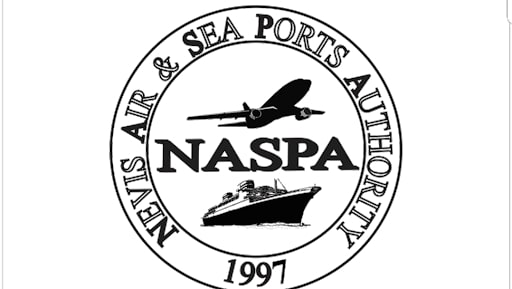Increased NASPA security protocols now in effect

NIA CHARLESTOWN NEVIS (June 28, 2021) – – The Nevis Air and Sea Ports Authority (NASPA) has implemented increased security protocols at all of its ports in order to better manage procedures with respect to travel between St. Kitts and Nevis.
The increased COVID-19-related measures at the Nevis ports took effect Sunday, June 27, 2021 and will remain until Monday, July 12, 2021.

Mr. Oral Brandy, NASPA General Manager, said it became necessary to tighten up on the measures implemented on June 12, 2021 especially those relating to restrictions on inter-island-travel. On June 12, 2021 ferry and water taxi services between the islands had been suspended and limited to essential travel only.
“There were some concerns with respect to persons traveling between the islands. Despite the restrictions in place however, we did have some problems. Unfortunately there were those persons not adhering to the measures as it related to essential travel. There were persons who came over to Nevis from St. Kitts and likewise we had persons going over to St. Kitts without proper reasons.
“I can’t say it was a large number, however in light of the recent developments regarding the spread of COVID-19 in the Federation, we implemented a series of new protocols at all our ports,” he explained.
Mr. Brandy said these measures, aimed at better controlling the movement of persons between the islands, are intended to prevent further spread of the deadly virus and safeguard the entire Federation.
The following are the procedures effected June 27, 2021:
1. All scheduled passenger ferry operations will be discontinued at the Charlestown Port until Monday, July 12, 2021.
2. All essential passenger travel will be directed to the Oualie Water Taxi Facility commencing Sunday, June 27, 2021 to Monday, July 12, 2021 in the first instance.
a. Charter services will be allowed for essential travel once approved by the Royal St. Christopher and Nevis Police Force and NASPA.
3. All essential travelers must provide documentation identifying them as essential personnel in the form of a written permission from the Royal St. Christopher and Nevis Police Force which can be obtained at www.police.kn
4. Cargo operations will continue between islands only on a schedule approved by the Royal St. Christopher and Nevis Police Force and NASPA.
a. Operations at Sea Bridge must also be pre-approved by the Royal St. Christopher and Nevis Police Force and NASPA.
5. A coordinated effort between the Royal St. Christopher and Nevis Police Force, NASPA, Security and Marine Department, St. Kitts and Nevis Customs and Excise Department, St. Kitts and Nevis Defence Force, and the Ministry of Tourism, Beach Patrol, will provide 24-hour land and sea surveillance to ensure strict compliance to the new protocols for the duration of the lockdown on St. Kitts.
6. All fishermen based in St. Kitts, who wish to conduct business in Nevis, are only authorized to use the tender pier, or middle pier, at the Charlestown Port.
a. Owners and operators of beach bars will be required to purchase fish from fishermen at the Charlestown Port and not on Pinney’s Beach.
b. Fishermen based in Nevis are allowed to continue operations at other areas, however, names of the crew should be reported to NASPA and the Royal St. Christopher and Nevis Police Force prior to departing.
c. All fishermen based in Nevis wishing to conduct business at the Charlestown Sea Port or the Oualie Water Taxi Facility must first notify security at the respective ports, who will then provide an escort.
7. Persons with complaints or reporting suspicious activities along the coastline are asked to call 311.
NASPA thanks members of the public for their continued patience and understanding as it seeks to keep the community safe, and encourages everyone to continue to follow the protocols in place – use its hand sanitization stations, practice social distancing, and always wear their masks.
